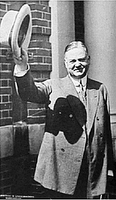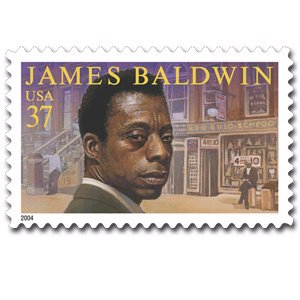
FDR's famous quote in his inaugural address "We have nothing to fear but fear itself" says a lot about this time period of doubt and economic turmoil. People were afraid for their jobs, afraid that they might be thrown out on the streets, afraid that their savings might disappear if their bank failed. All of the stuff that they had believed in about the American Dream - work hard, save money, follow the rules and you'll be rewarded - was crumbling before their eyes.
During Herbert Hoover's administration, however, President Hoover tried to reassure the nation that the economy was basically sound and that Americans needed to follow the example set by many of rugged individualism. This concept was widely accepted before the turn of the 20th century when Hoover grew up - the idea that life is a race; "[Americans] give [everyone] an equal start; we provide in the government the umpire of fairness in the race. The winner is he who shows the most conscientious training, the greatest ability, and the greatest chracter" (Hofstadter 387). Hoover followed this creed as did thousands others who became rich in the time before the Depression. The problem was, millions became poor and showed that the race was far from equal or fair. Those with the greatest ability or character did not always win.

Before you answer the question below, click on the link for Journal #2 and read the article about rich and poor in today's society. http://news.yahoo.com/s/afp/20070122/lf_afp/useconomysocialwealth
My questions for you are this:
1. Is life like a race and those who are the strongest, smartest, etc. win the race? If so, explain. If not, explain your alternative.
2. Do you think life in America is fair? Why or why not?
Please don't forget to leave your name on your comment. Thanks.
